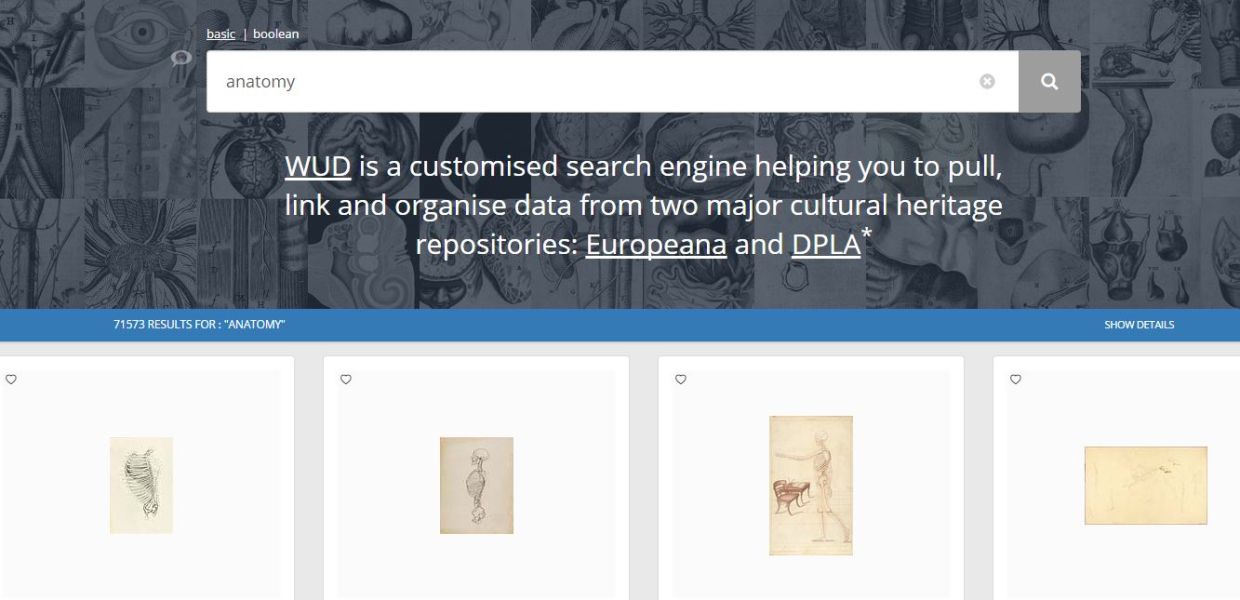What’s up doc ! : explore the history of medicine with WUD
By using the broad term of “Digital Humanities” we tend to forget the diversity of disciplines it covers. What about the “Medical Humanities”

The Medicine and Society chair at the University of Fribourg explores the relationships between the medical practices and their social impact in order to better understand the history of Medicine and Health. The challenge is how to lead these studies in a digital environment?
The University of Fribourg started to explore the wealth of digitised Cultural Heritage materials in a virtual exhibition about Food and its history. This exhibition re-uses materials from cultural heritage institutions like the Rijksmuseum or the Wellcome Library.
The University went further by developing WUD ("What’s up doc”), a discovery engine based on the Europeana and DPLA APIs
WUD currently retrieves any object from the Europeana and DPLA datasets but the team is currently working on a filter that will enable users to retrieve only results specific to the history of medicine. New cultural heritage datasets will be also added such as Deutsche Digitale Bibliothek, the The British Museum or Trove.
WUD is open source and the code is available on Github. It was built with Angular JS and UI Bootstrap.
WUD demonstrates how Europeana data can be re-used in domain specific areas. The development of simple interface pre-selecting and organising content related to a specific theme makes cultural heritage data more accessible to researchers.
The WUD team is seeking for feedback, feel free to contact them!
Valentine Charles (Europeana Foundation), @valentinec89, https://twitter.com/valentinec89
Radu Suciu (University of Fribourg), @radusuciu, http://twitter.com/radusuciu.
